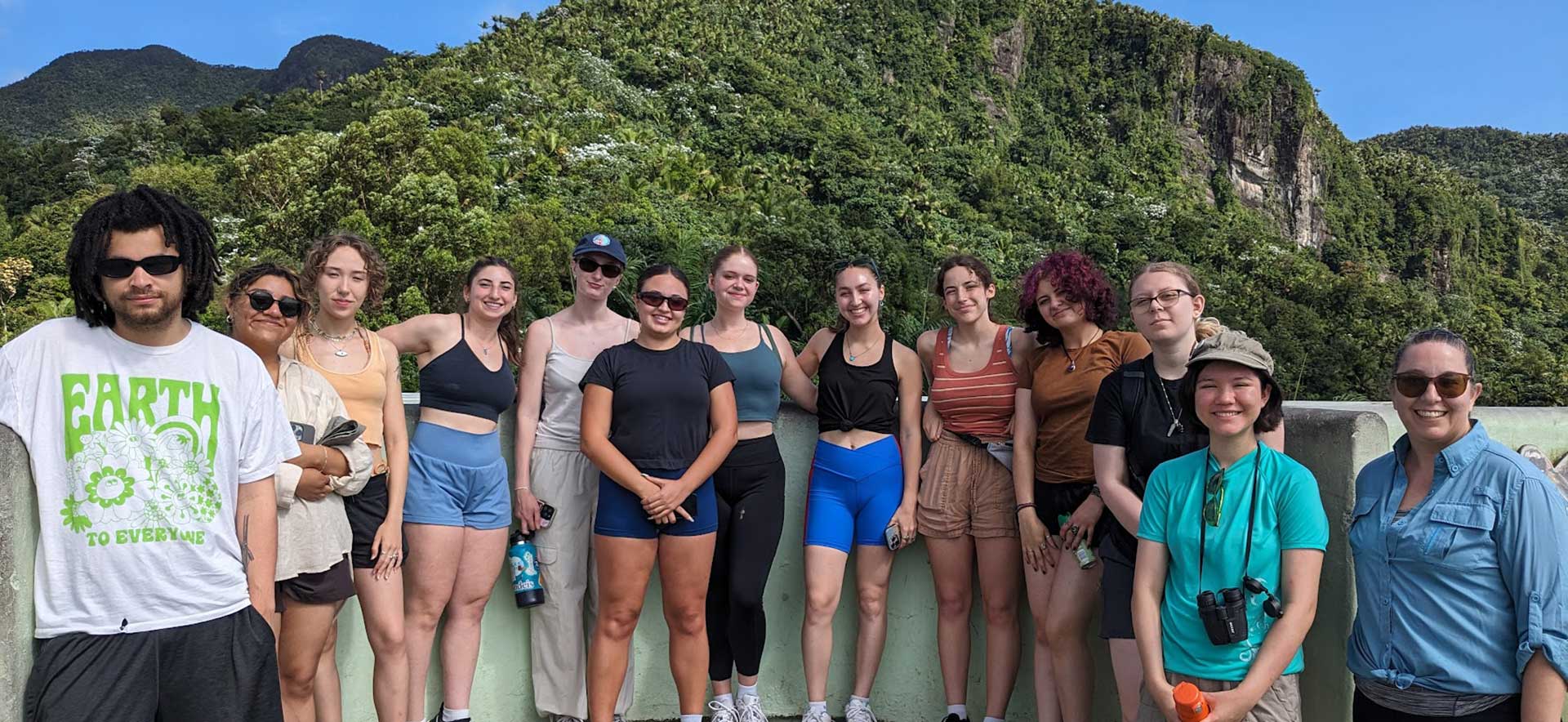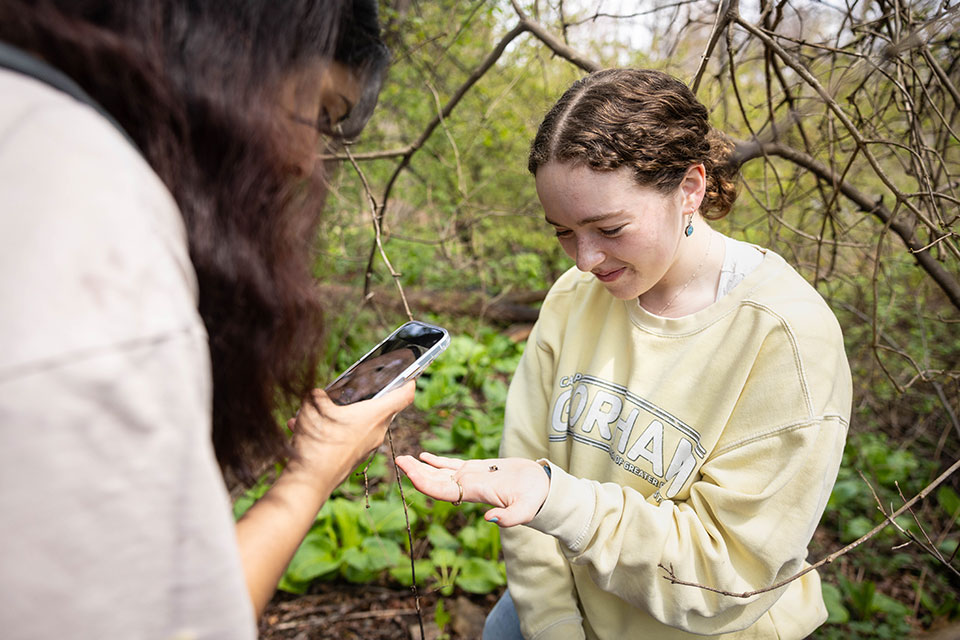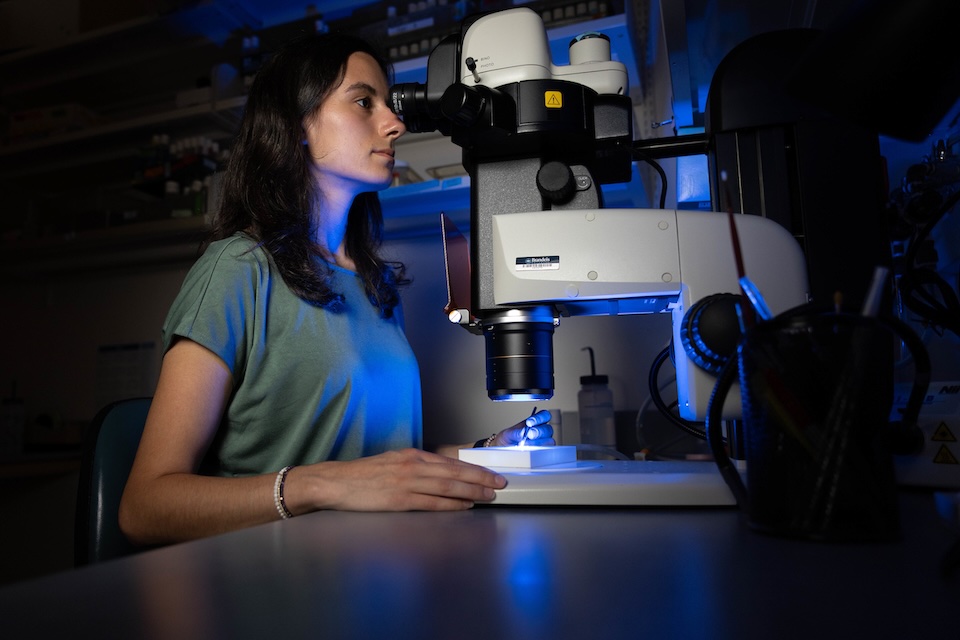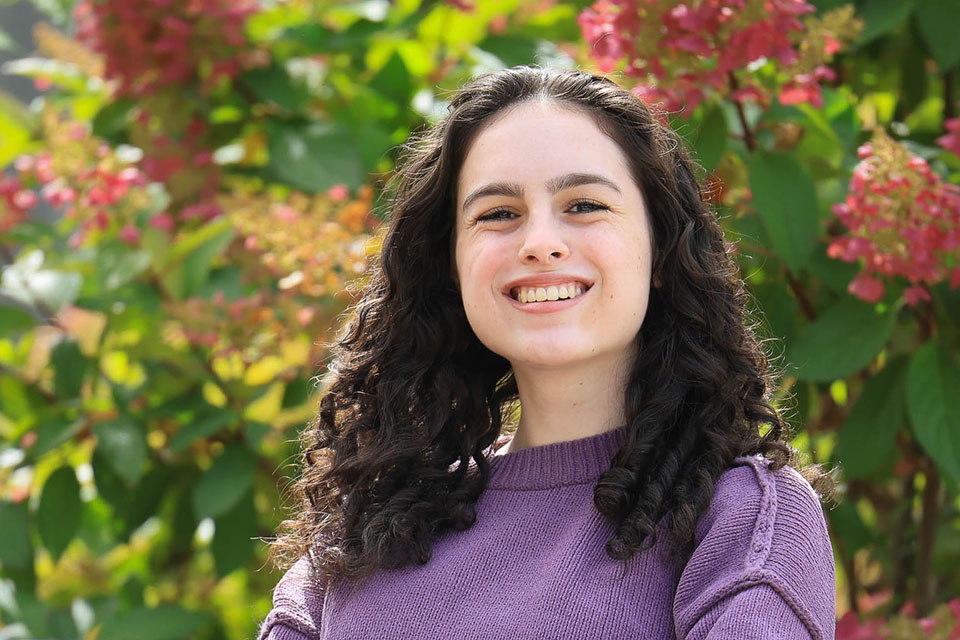Studying climate change firsthand in Puerto Rico

Photo Credit: Sally Warner
By David Levin
June 17, 2024
Brandeis has launched its inaugural study abroad program in San Juan, Puerto Rico. The program, led by Sally Warner, associate professor of climate science, enables students to study the impacts of climate change on a Caribbean island that has been devastated by powerful hurricanes, rising seas, and warming temperatures throughout the past decade.
The diverse island landscape, which is home to coral reefs, mountains, rainforests, and mangroves, is a major draw, said Alisha Cardwell, director of Study Abroad at Brandeis — especially since its status as a non-incorporated U.S. territory makes it easily accessible to students without a passport. “There’s no need for any additional visas, yet it still offers a chance to study a place that has a rich culture, unique environmental pressures, and important and complicated ties with the United States and the rest of Latin America," she said.
Over the course of five weeks in late May and June, 12 Brandeis students took environmental studies courses with Warner and professors at the Universidad de Sagrado Corazon in San Juan, where they learned about basic oceanography and sustainable development issues that affect the entire Caribbean region. They also took an immersion course in Spanish language and Puerto Rican culture.
In addition to getting out of the classroom and seeing the effects of climate change in the field, the trip also gave students the chance to live and work among Puerto Ricans who have lived through devastating hurricanes. The conversations that have emerged from those interactions have already deepened students’ understanding of what it means to be resilient in the face of climate change, said Islay Morrison ’26.
“It has really modeled to me how the strength and support of a community is crucial to rebuilding after climate change disasters — and in overcoming climate change itself,” she said.
That’s exactly the sort of lesson that Warner hopes all students take away from the program.
“Being here will give them an important lens for learning environmental studies in a landscape that’s really different from Massachusetts,” said Warner. “In the environmental studies program, we emphasize the theme of climate justice; that people who have done the least to cause climate change are often the ones who are the most impacted by it. Seeing how that plays out in the real world gives students a far better lesson than we can provide in the classroom alone.”


